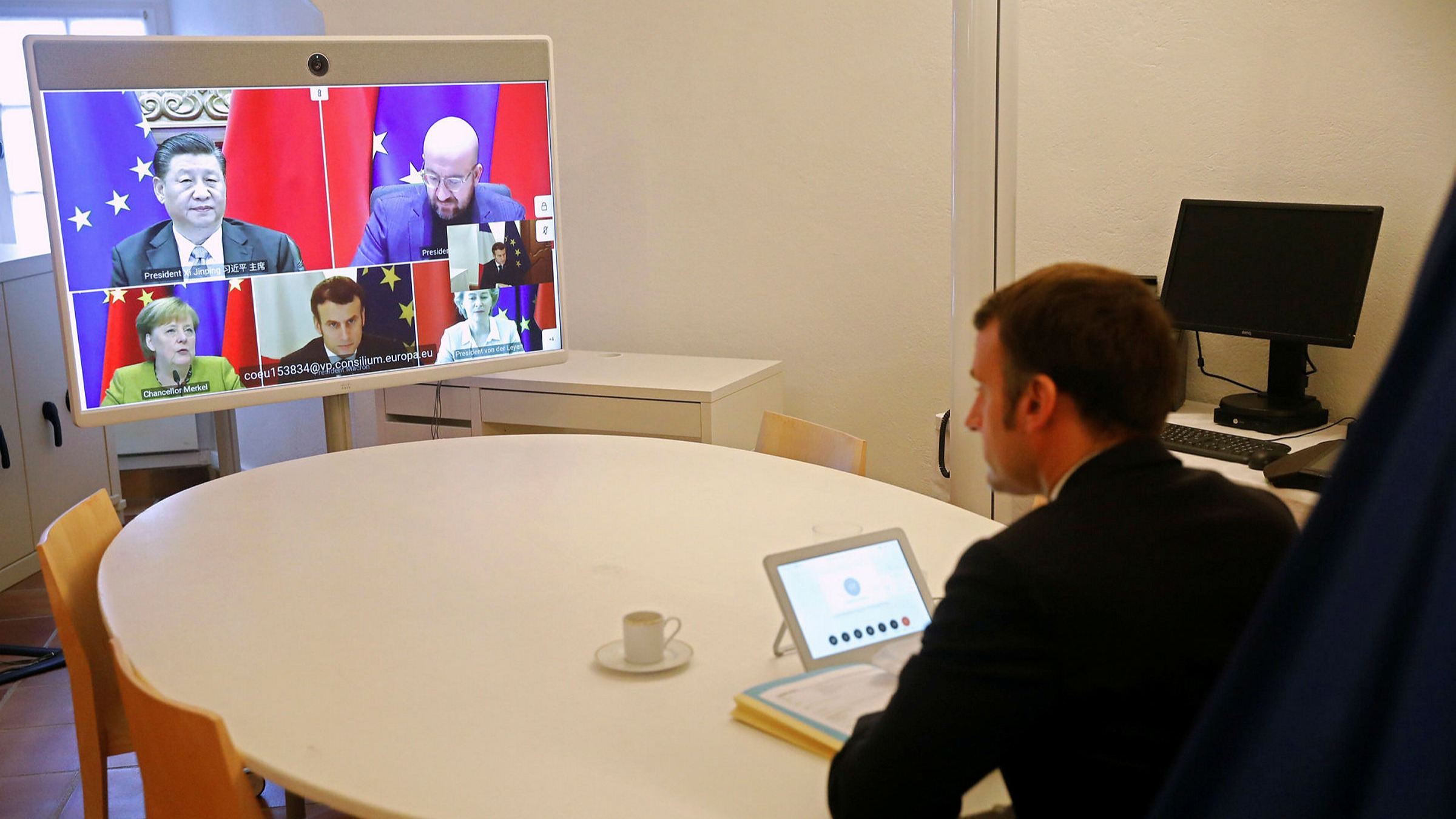Biden’s EU honeymoon is already over
https://arab.news/5utav

Winston Churchill, whose mother was a US native, knew his great transatlantic ally well when he (apocryphally) said: “The Americans can be counted on to do the right thing... but only after exhausting every other option.”
At a stroke, the quote sums up all that is traditionally good in American political risk analysis — the country’s cheerful, if ruthless, pragmatism — as well as highlighting the fact that keeping up with the times has never come easily to the US. In the early scuttling of President-elect Joe Biden’s love affair with the EU, we are about to see both the traditional highs and lows of American thinking in action.
During my years in Washington, it became crystal clear to me that one of the major impediments to the country’s foreign policy elite dealing with political risk was the intellectual sclerosis of most of its members. For example, whatever the foreign policy issue, Democratic Wilsonians seemed to robotically call for “international coalitions,” “diplomacy” and “sanctions” to deal with the problem, just as equally unthinking Republican neoconservatives called for “sovereign toughness,” “a show of force” and “military action” as a panacea for all problems. One of the many reasons I came to eschew the (then) majority schools of thought dominating the two parties was their poverty of thinking beyond these mantras.
Biden, establishment man to his core, has unsurprisingly come to the presidency applying threadbare Wilsonian points of view that frankly passed their sell-by date a generation ago. Among them is the beguiling shibboleth that the natural state of things is for most countries in the world to yearn to form a close alliance with America, always sharing its core interests, and that all it takes is a little US diplomacy to assert this natural order. A second out-of-date Wilsonian adage is that Europe has — and will forever continue — to strategically play Robin to America’s Batman.
While this line may generally have held true during the days of hostility between the US and the Soviet Union, it gently bears mentioning that the Cold War ended fully 30 years ago. The depressing intellectual time lag of the incoming Biden team is explained by the simple fact that their thinking has not evolved over the past generation and a half, while the structural nature of our world has.
We no longer live in a time of tight Cold War bipolarity, where the USSR and the US can beguile and bully allies into generally going along with whatever they set out to strategically accomplish. Rather, our age is one of loose bipolarity wherein, beneath the overall Sino-American superpower competition, great powers the EU, the Anglosphere countries, India, Japan and Russia have far more room to maneuver in crafting independent foreign policies of their own.
In fact, all these great powers have a fundamental choice ahead of them, a strategic reality presently beyond the reactionary, out-of-date thinking of Biden and his incoming team: Do they align with their prospective superpower ally (the US in the case of the EU, Japan, the Anglosphere and India, and China in the case of Russia) or chart an independent, more neutralist course of their own?
But facts are stubborn things, having a way of upsetting even the most cherished intellectual daydream. In signing an investment deal with Beijing this past week, the EU — which has drifted inexorably over this past year to a position of increasing neutrality in the Sino-American Cold War — dramatically lifted the veil on this process.
Biden has come to the presidency applying threadbare points of view that frankly passed their sell-by date a generation ago.
Dr. John C. Hulsman
In terms of its detail, the new pact — pointedly signed ahead of the Biden team’s assumption of power and promised tilt back to Europe — loosens a series of restrictions imposed on continental companies operating in China. It partially does away with the onerous requirement that Europeans operate in the huge Chinese market by creating joint ventures with local companies, inevitably sharing sensitive trade secrets and technology with them. The agreement also at last opens up the Chinese market to European banks.
While all this makes eminent, technocratic, economic sense, what the investment deal also surely does is signal to the world that the EU as a whole is now in essence a neutral party in the fledgling Sino-American Cold War. Despite the backward-looking certitudes of Biden’s team, with the increase in German mercantilism and French Gaullism, the EU can no longer be counted on to serve as a committed American ally.
Biden’s out-of-touch Wilsonian pivot to Europe survived barely a month after his election triumph before real world facts already laid it to rest. But, again, as Churchill made clear, if Americans are often clueless, they are also pragmatic. It will take Biden’s team time for the shock of European neutralism to sink in. But, a year or so from now, look for the US to do what it always does: Pragmatically adjust and work ever more closely with its still-winnable Anglosphere, Japanese and Indian allies to balance against China. America is wrong, as it so often has been. But it will move on.
- Dr. John C. Hulsman is the president and managing partner of John C. Hulsman Enterprises, a prominent global political risk consulting firm. He is also senior columnist for City AM, the newspaper of the City of London. He can be contacted via chartwellspeakers.com









































